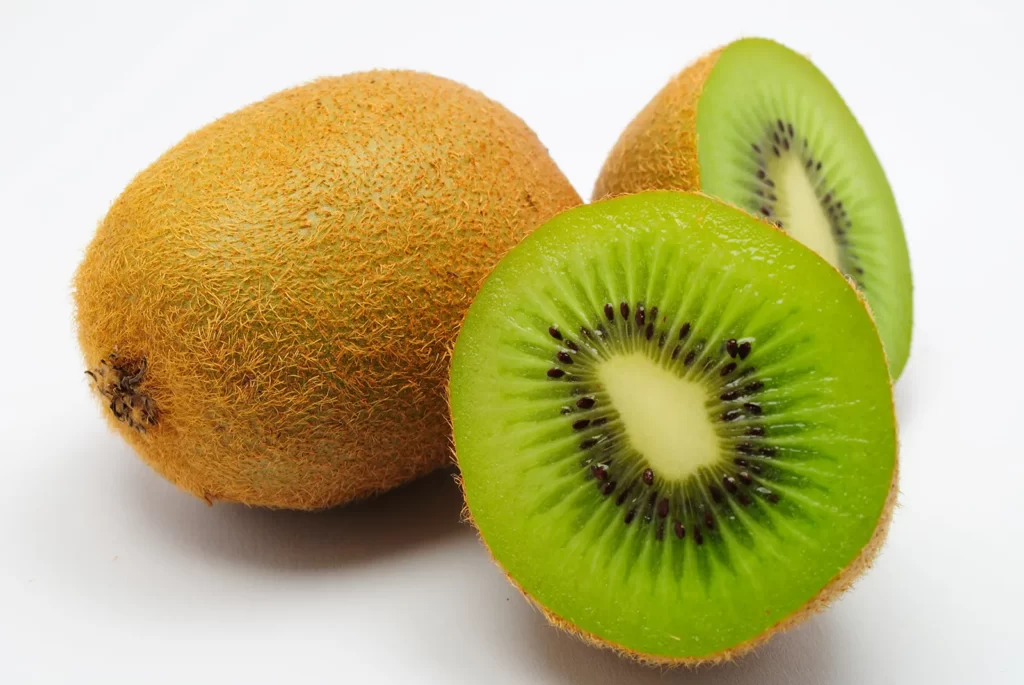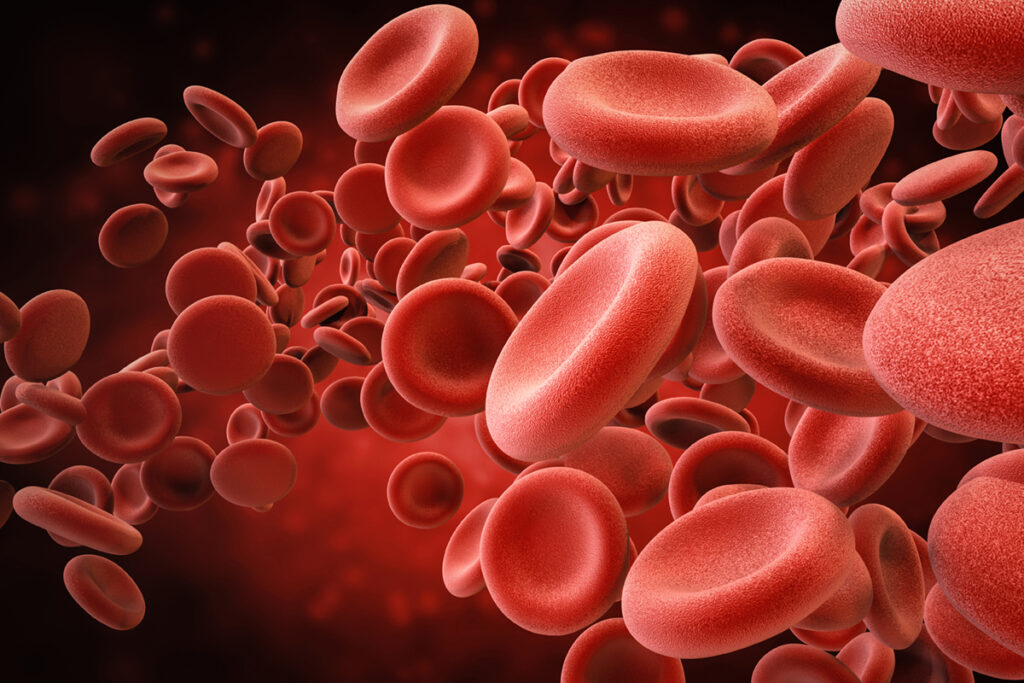In the world of fruits, the lovely-looking kiwi stands out not only for its unique appearance and vibrant green color but also for its incredible nutritional profile. This small, fuzzy fruit packs a punch when it comes to health benefits, making it a valuable addition to any diet. Let’s dive deep into the 12 awesome health benefits of kiwi. These benefits will make you realise why you should eat at least one kiwi a day. Without further wasting time, let’s know all these health benefits of kiwi one by one in detail.
Rich in Vitamin C
Kiwi is renowned for its exceptionally high vitamin C content. A 100-gram serving of kiwi provides more vitamin C than an equivalent amount of oranges. Vitamin C is a potent antioxidant that plays a crucial role in supporting the immune system. It helps the body combat infections, promotes the production of white blood cells, and enhances the body’s ability to absorb iron.

Supports Digestive Health
Beyond its vitamin C prowess, kiwi shines as an excellent source of dietary fiber. This fiber content is crucial for maintaining a healthy digestive system. Fiber adds bulk to the stool, promoting regular bowel movements and preventing constipation. The soluble fiber in kiwi also plays a role in regulating blood sugar levels by slowing down the absorption of sugars.

Helps to Combat Oxidative Stress
Kiwi contains a variety of antioxidants, including polyphenols and carotenoids, which help neutralize free radicals in the body. These free radicals, if left unchecked, can lead to oxidative stress and contribute to various chronic diseases, including cancer and cardiovascular issues. Regular consumption of kiwi may help combat oxidative stress and promote overall health. It’s one of the outstanding health benefits of kiwi that makes it so popular among health-conscious people.

A Great Calorie-Conscious Snacking Option
For those mindful of calorie intake, kiwi emerges as a smart and delicious option. With its low-calorie profile, it becomes a guilt-free snack that can be enjoyed without compromising on health goals. Its low energy density makes it particularly suitable for individuals looking to manage or lose weight.
Rich in Vitamins and Minerals
Kiwi is not only a vitamin C powerhouse but also a rich source of other essential nutrients. It contains vitamin K, which is crucial for blood clotting and bone health, as well as vitamin E, an antioxidant that helps protect cells from damage. Additionally, kiwi provides potassium, a mineral important for maintaining proper heart and muscle function, and folate, essential for cell division and DNA synthesis.
Aids Digestion Issues
Enzymes are essential for breaking down food in the digestive system, and kiwi houses a key player in this process – actinidin. This enzyme aids in the digestion of proteins, potentially enhancing overall digestion and nutrient absorption. This is one of those benefits of kiwi that can be particularly beneficial for individuals with digestive issues.
Improves Sleep Quality
Kiwi isn’t just a daytime delight; it may contribute to a restful night’s sleep. The fruit contains serotonin, a neurotransmitter involved in regulating sleep patterns. Serotonin acts as a precursor to melatonin, the hormone responsible for sleep-wake cycles. Consuming kiwi, especially in the evening, may promote improved sleep quality and duration.

Promotes Skin Health
Vitamin C’s presence in kiwi is a boon for skin health. This vitamin is crucial for collagen synthesis, the protein responsible for skin structure. Regular consumption of kiwi can contribute to healthy skin by supporting collagen production, reducing wrinkles, and promoting a youthful complexion. The antioxidants in kiwi also protect the skin from damage caused by free radicals. So, just like Aloe Vera, kiwi can also take care of your skin health.
Supports Heart Health
The combination of potassium and fiber in kiwi contributes to heart health. Potassium helps regulate blood pressure by balancing sodium levels in the body. The fiber content assists in lowering cholesterol levels, further supporting cardiovascular well-being. So, it is undoubtedly one of the greatest benefits of kiwi which is why, including kiwi in a heart-healthy diet may help reduce the risk of heart disease.

Regulates Blood Sugar
The fiber content in kiwi, along with its low glycemic index, makes it a favorable choice for individuals looking to regulate blood sugar levels. Fiber slows down the absorption of sugars, preventing rapid spikes and crashes in blood glucose. This can be particularly beneficial for individuals with diabetes or those at risk of developing the condition.

Maintains Eye Health
One of the most amazing benefits of kiwi is to support and maintain eye health. Kiwi is a rich source of lutein and zeaxanthin, carotenoids beneficial for eye health. These compounds, concentrated in the retina, help protect against age-related macular degeneration and other eye conditions. Incorporating kiwi into a diet rich in these carotenoids can contribute to maintaining optimal vision.

Reduces Blood Clotting
Some studies suggest that kiwi may have a natural blood-thinning effect. Substances found in kiwi, such as bromelain and actinidin, may help prevent the formation of blood clots. While more research is needed to fully understand this potential benefit, incorporating kiwi into a balanced diet may contribute to cardiovascular health.

Conclusion
In conclusion, the kiwi stands as a nutritional treasure trove, offering an impressive array of nutrients, antioxidants, and enzymes. Whether you’re seeking to boost your immune system, improve digestion, support heart health, or enhance the quality of your skin and sleep, kiwi proves to be a delicious and nutritious ally. Consider incorporating this small but mighty fruit into your daily diet, and unlock the numerous health benefits it has to offer. Hopefully, you found this article about benefits of kiwi helpful enough. If you really did then let us know your valuable thoughts in the comment section down below. Thanks for visiting and appreciating our work.
